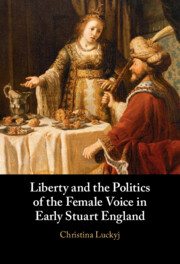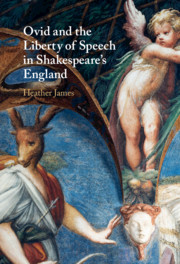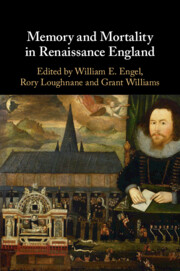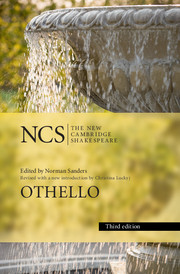Liberty and the Politics of the Female Voice in Early Stuart England
The female voice was deployed by male and female authors alike to signal emerging discourses of religious and political liberty in early Stuart England. Christina Luckyj's important new study focuses critical attention on writing in multiple genres to show how, in the coded rhetoric of seventeenth-century religious politics, the wife's conscience in resisting tyranny represents the rights of the subject, and the bride's militant voice in the Song of Songs champions Christ's independent jurisdiction. Revealing this gendered system of representation through close analysis of writings by Elizabeth Cary, Aemilia Lanyer, Rachel Speght, Mary Wroth and Anne Southwell, Luckyj illuminates the dangers of essentializing female voices and restricting them to domestic space. Through their connections with parliament, with factional courtiers, or with dissident religious figures, major women writers occupied a powerful oppositional stance in relation to early Stuart monarchs and crafted a radical new politics of the female voice.
- Reverses the marginalization of early modern women writers by connecting their uses of the female voice to well-known works by both male and female authors
- Examines key metaphors that associate the conscience of the wife with the rights of the political subject to argue that women were central to Protestant discourses of political and religious liberty
- Breaks down previously unchallenged divisions between early Stuart women's writing and the male-authored canon of early modern literature
Reviews & endorsements
‘This is a fascinating piece of scholarship, which like all good books, points to something obvious that we have overlooked. In the extensive work done on voice, little attention has been paid to why male authors (and by extension readers too) in the period were so invested in the female voice. Rather than essentializing the female voice, this book will enable us to read female voices in more fully historicised and politicised terms. Christina Luckyj's deft and detailed analysis brings something genuinely new to our understanding of the key texts, positioning these writers within a culture of (mostly) Biblical reading and interpretation that focusses on politics in the widest sense. It will be a field-defining book.' Danielle Clarke, University College Dublin
Product details
March 2022Hardback
9781108845090
300 pages
235 × 158 × 21 mm
0.56kg
Available
Table of Contents
- 1. The politics of the female voice
- 2. Conscience and desire
- 3. Elizabeth Cary and the 'publike-good'
- 4. 'Not Sparing Kings:' Aemilia Lanyer
- 5. Rachel Speght and the 'Criticall Reader'
- 6. Mary Wroth and the politics of liberty
- 7. 'Yokefellow, or Slave:' Anne Southwell.






